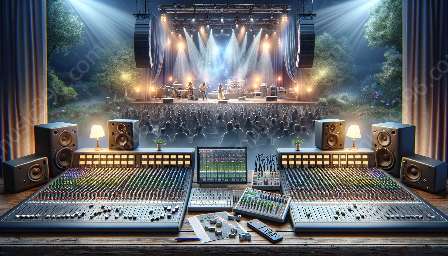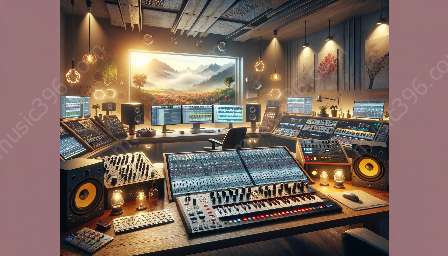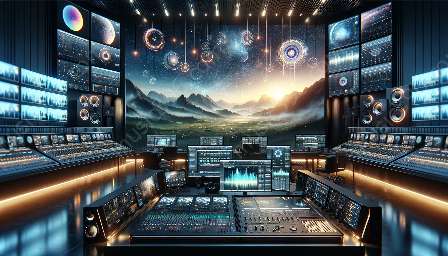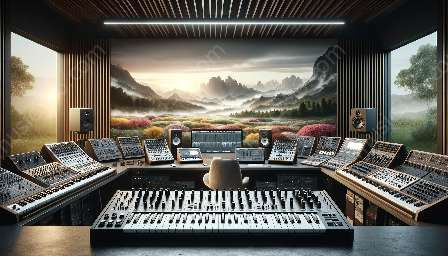Technology has significantly transformed the music industry, revolutionizing the way music is created, produced, distributed, and consumed. In this comprehensive exploration, we will delve into the innovative ways in which technology has influenced the world of music, from the inception of CDs and audio formats to the latest advancements in music composition, distribution, and consumption.
The Evolution of Music Technology
The emergence of digital recording and editing software
One of the most significant impacts of technology on music is the advent of digital recording and editing software. This technology has fundamentally altered the recording and production processes, allowing artists to manipulate and enhance their music in ways that were previously unimaginable. With the ability to record and edit music digitally, artists have greater flexibility and control over their creative output, leading to the production of more complex and innovative musical compositions.
The rise of streaming platforms
The rise of streaming platforms has dramatically transformed the way music is distributed and consumed. With the advent of platforms like Spotify, Apple Music, and Tidal, music fans now have instant access to millions of songs at their fingertips. This shift in music consumption has reshaped the traditional music industry, providing new opportunities for independent artists to reach global audiences without the need for major record labels.
Enhanced Audio Quality and Accessibility
The Impact of CDs and Audio Formats
The introduction of CDs revolutionized the way music was stored and played. CDs offered enhanced audio quality compared to traditional vinyl records and cassette tapes, providing listeners with a superior listening experience. Additionally, the compact nature of CDs made music more portable and accessible, paving the way for the modern digital music era.
Digital audio advancements
Technological advancements have continuously improved the quality of audio formats, with the development of high-resolution audio and lossless compression techniques. These innovations have elevated the listening experience for music enthusiasts, offering unparalleled sound quality that faithfully reproduces the artist's original recordings.
Revolutionizing Music Creation and Collaboration
Impact of digital audio workstations (DAWs)
Digital audio workstations have revolutionized the way music is created and produced. These software applications provide artists with a comprehensive suite of tools for recording, editing, and mixing music, empowering them to explore new sonic possibilities and collaborate with other musicians and producers across the globe.
Collaborative platforms and virtual reality in music
Technology has facilitated collaborative music creation through online platforms and virtual reality tools, allowing artists to seamlessly collaborate on projects regardless of their geographical locations. Virtual reality has also opened up new avenues for immersive music experiences, enabling audiences to interact with music in unprecedented ways.
Conclusion
In conclusion, the impact of technology on music has been profound and far-reaching. From the introduction of CDs and audio formats to the latest innovations in music production and distribution, technology has continually reshaped the music industry and the way we experience and engage with music. As technology continues to advance, we can expect further transformative developments that will shape the future of music for generations to come.
Topic
Impact of Streaming Platforms on Music Industry
View details
Role of AI and Machine Learning in Music Production
View details
Ethical Considerations in Music Production Technology
View details
Accessibility of Music for Individuals with Disabilities
View details
Technology in Analyzing Music Consumption Patterns
View details
Digital Music Piracy and Copyright Infringement
View details
Collaboration and Communication in Music Production
View details
Creative Process of Music Composition and Technology
View details
Cultural and Societal Impacts of Music Technology
View details
Acceptance of Digitally Manipulated Audio Recordings
View details
Utilization of Technology in Live Audiovisual Performances
View details
Historical and Contemporary Trends in Music Technology
View details
Questions
What impact has technology had on the production of music albums?
View details
How has digital technology affected the quality of audio recordings?
View details
What role has technology played in the evolution of music distribution?
View details
How has technology influenced the creation of music software and tools?
View details
What impact do streaming platforms have on the music industry?
View details
How has technology changed the experience of live music performances?
View details
What are the ethical considerations of using technology in music production?
View details
What impact has technology had on the concept of album artwork and design?
View details
How has technology influenced the development of music recording equipment?
View details
What are the implications of AI and machine learning in music composition and production?
View details
How have advancements in audio technology affected the perception of sound quality?
View details
What role does technology play in preserving and archiving audio recordings?
View details
How has technology influenced the role of the music producer?
View details
What are the challenges and benefits of using technology in music education?
View details
How has technology changed the landscape of music marketing and promotion?
View details
What impact does technology have on the accessibility of music for individuals with disabilities?
View details
What are the implications of virtual and augmented reality in music experiences?
View details
How has technology affected the process of music curation and recommendation?
View details
What role does technology play in analyzing and understanding music consumption patterns?
View details
How has technology influenced the perception and reception of experimental music genres?
View details
What impact has technology had on the integration of visuals and music in multimedia projects?
View details
How has technology changed the landscape of live music recording and production?
View details
What are the implications of digital music piracy and copyright infringement?
View details
What role do mobile apps and streaming services play in shaping music listening habits?
View details
How has technology influenced the collaboration and communication processes in music production?
View details
What impact does technology have on the intersection of music and gaming?
View details
How has technology affected the creative process of music composition and arrangement?
View details
What are the cultural and societal impacts of technology on music consumption?
View details
What role has technology played in the evolution of live sound engineering?
View details
How has technology changed the perception and acceptance of digitally manipulated audio recordings?
View details
What impact do social media and online communities have on music discovery and exposure?
View details
How has technology influenced the implementation of live audiovisual performances?
View details
What are the historical and contemporary trends in the utilization of technology in music production and consumption?
View details






























